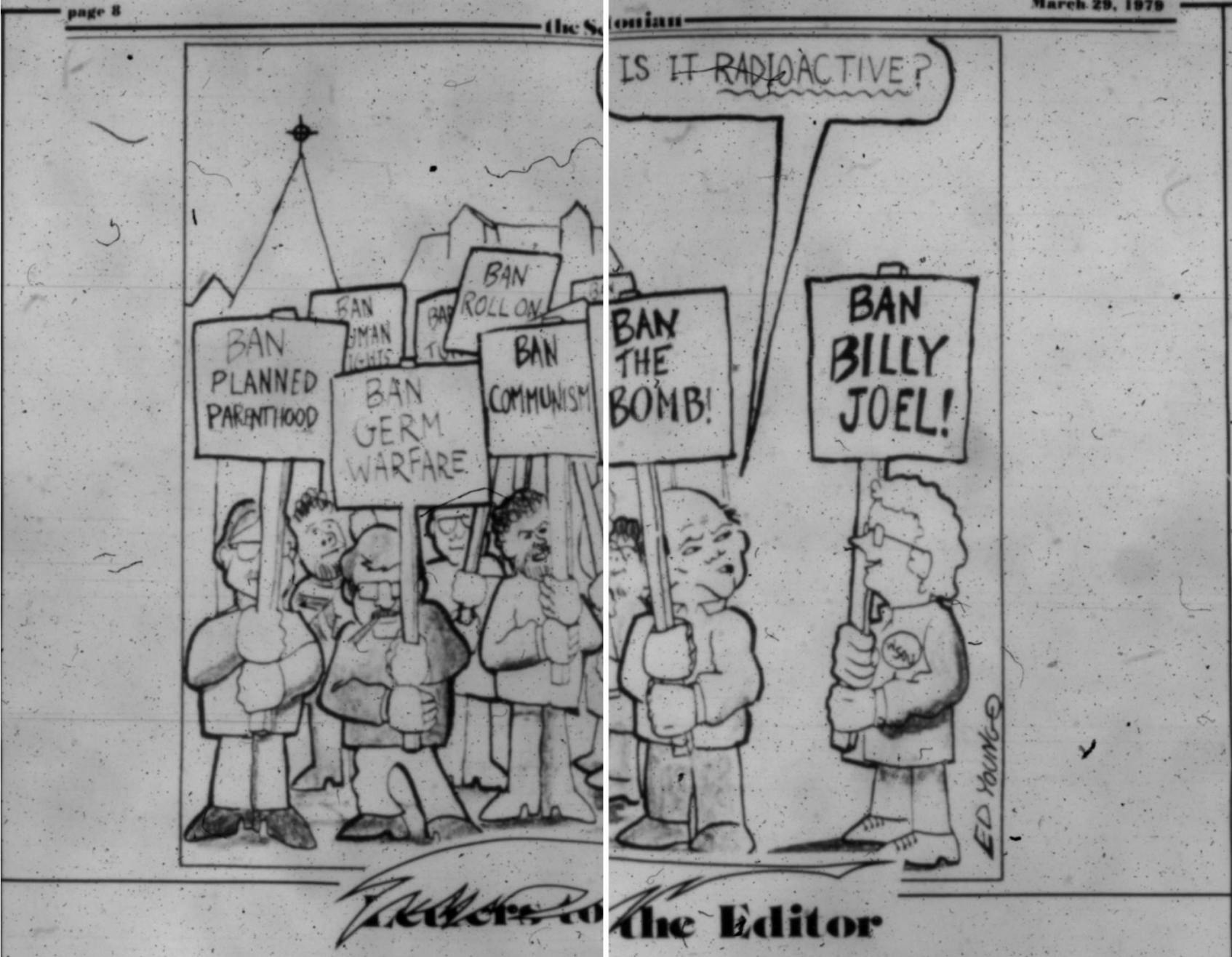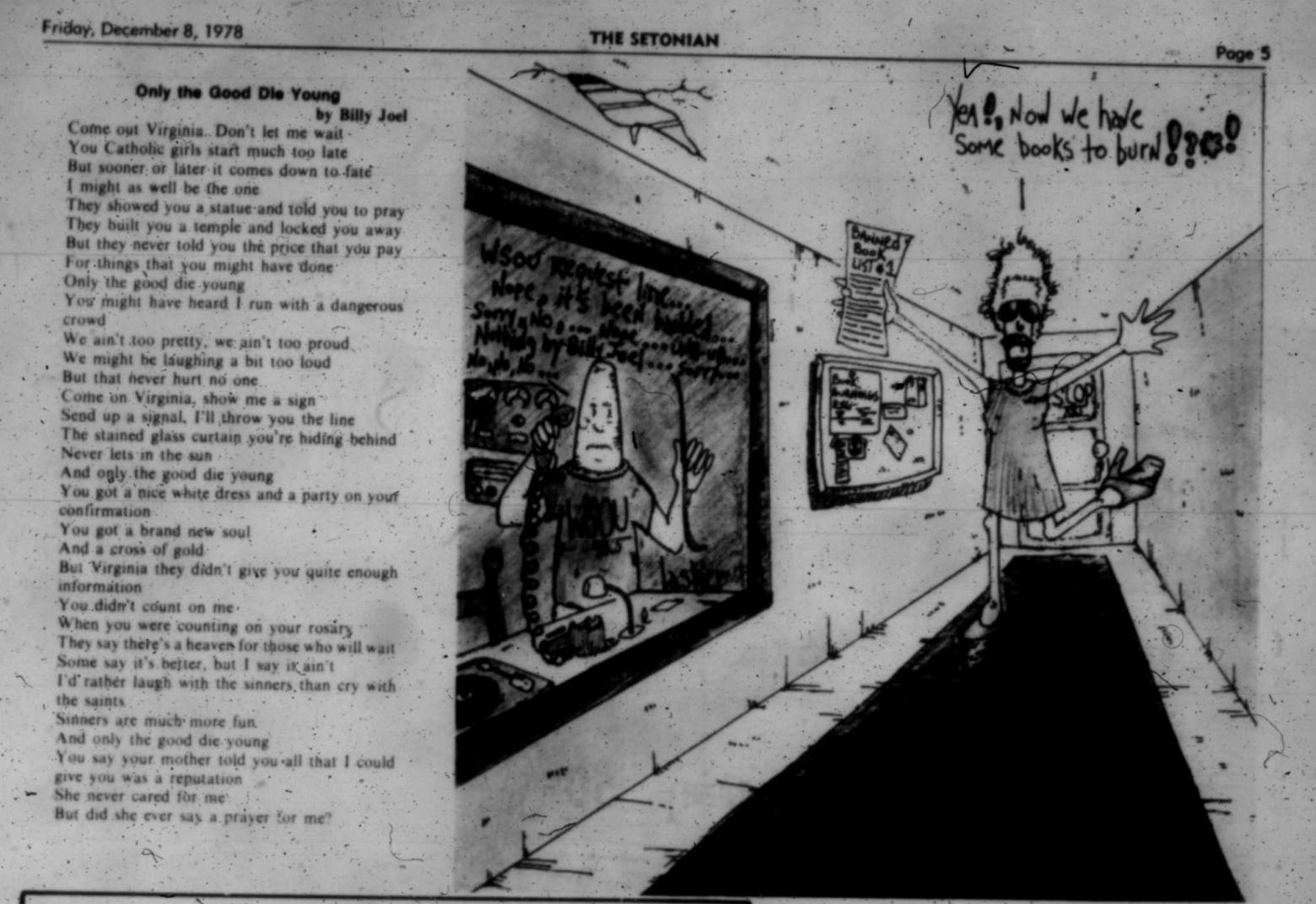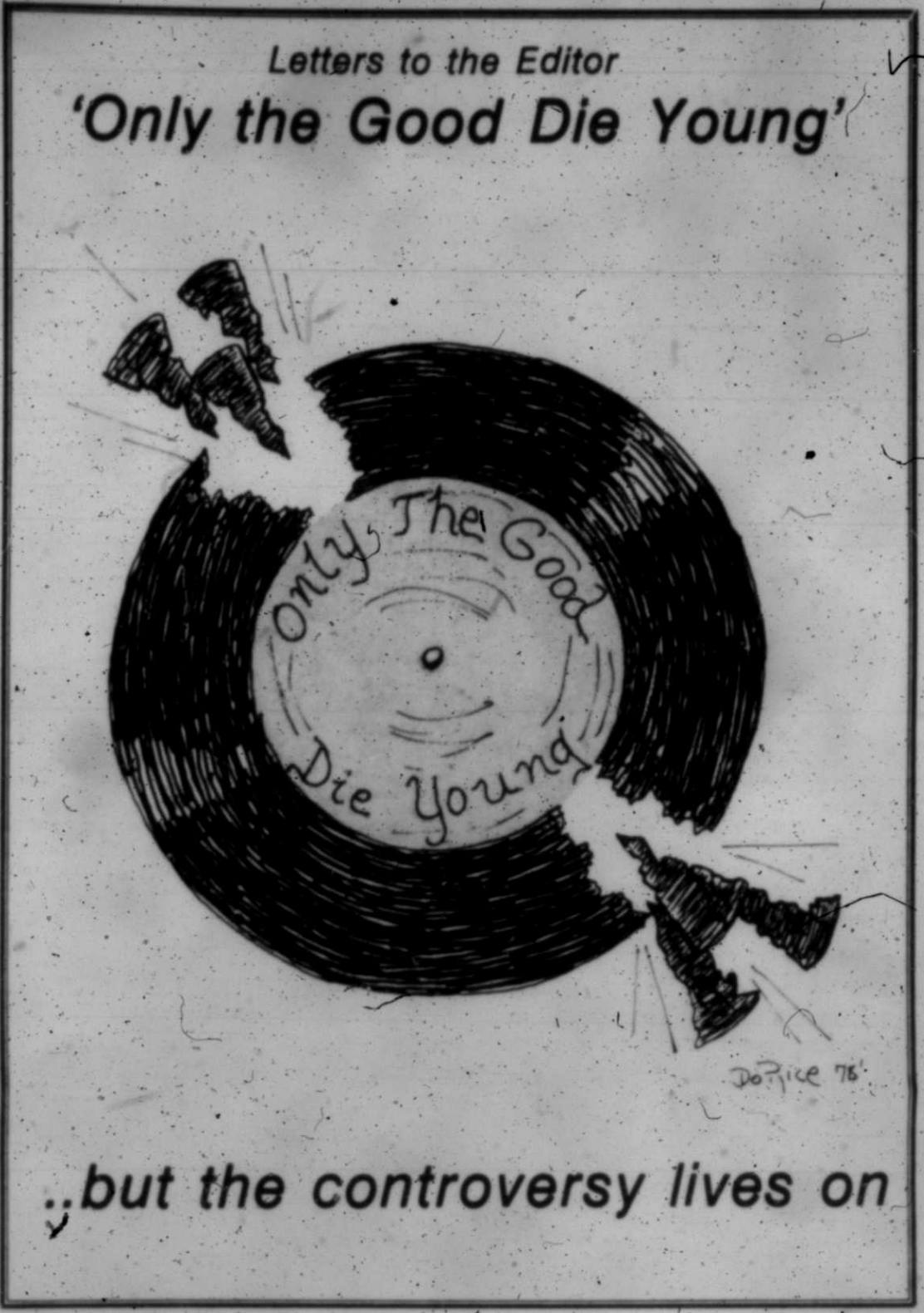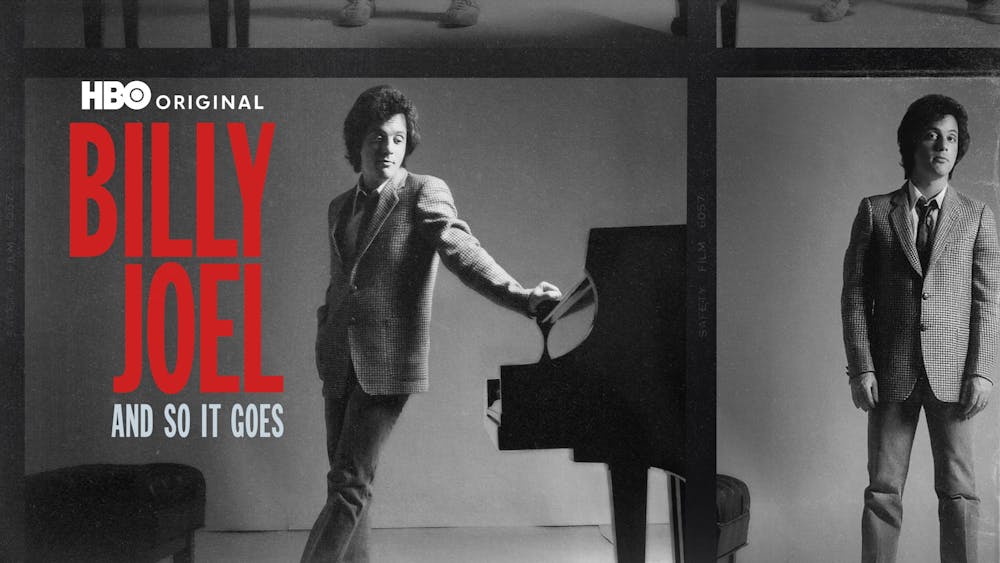A piece of Seton Hall’s history aired in a new docuseries on Billy Joel, revealing the role the university’s radio station, WSOU, played in the early years of his music career.
On July 18, the first episode of “Billy Joel: And So It Goes” premiered on HBO Max, with the second episode premiering on July 25.
“Billy Joel: And So It Goes” is a two-part series highlighting the life and music of Billy Joel, exploring love, loss and struggles that contributed to his songwriting. According to USA Today, the series is a “candid assessment” of the struggles Joel endured, including depression, alcoholism, and bankruptcy.
About an hour and 50 minutes into the episode, Joel sings one of his popular hits, “Only the Good Die Young,” which was released in 1977 on his fifth studio album, “Stranger,” and released as a single in 1978.
The song was deemed controversial. It referenced pre-marital sex, with some arguing that it was anti-Catholic. The Catholic Church banned the song; however, it reached number 24 on Billboard's Hot 100 that year.
“It wasn’t selling all that well,” Joel said. “As soon as they banned the sale of it, kids went out and drove to buy this thing. ‘What can’t we have, what shouldn’t we hear.’ So I wrote a letter to the archdiocese of St. Louis, who banned it, and I said ‘Please ban my next record because you know I’m coming out with a new single soon.”’
Joel said “The Stranger” became the best-selling record that Columbia Records ever released.
Joel’s lyrics referencing these messages read:
“Come out, Virginia, don't let me wait
You Catholic girls start much too late
Aw, but sooner or later it comes down to fate
I might as well will be the one”
During the segment about the song, in the first episode of the docuseries, articles written about the ban filled the screen. The first article shown on screen from Gannett News, "Catholic University Bans Billy Joel Song,” was written about SHU by SHU alumnus Harry Herbert “Herb” Ditzel III. As a Catholic institution, SHU participated in the ban of Billy Joel’s “Only the Good Die Young” as WSOU was prohibited from playing it.
Kevin Hislop, a communication professor at SHU, and WSOU station director, told The New York Times in 1978 that the decision of a university-wide ban was made after a meeting with the station’s management.
Reported in the December 1, 1978, edition of The Setonian, the ban began when a divinity student wrote a letter complaining about the song’s lyrics. The song was highly rated and played by local stations, including WSOU, as it “had an obligation” to the local community and SHU. WSOU received more letters, prompting Hislop and Barry Smith, the program director, to pull the song. After WSOU received more letters, an official in the Department of Ministry urged Hislop to impose a ban, which he executed.

Joel’s song wasn’t the only song banned from the station at the time. WSOU barred three others: “In the Bush,” by Musique; “Some Girls,” and “As the Whip Comes Down,” by The Rolling Stones. The song, “Beast of Burden,” by The Rolling Stones, was edited for broadcast. These songs were “offensive,” "derogatory," and “not suitable for broadcast.”
George Forman, 1979 communication alumnus and a member of WSOU, said that no one ever called him up on the air expressing their disapproval of the song.
“And then one day it was just like, okay, boom, this song is banned,” Forman said.
Forman said he understands why the song was banned at SHU.
“This is a Catholic university—the radio station [is] under the auspices of the Archdiocese. When it's a commercial radio station, it's totally different.”
“Are there people who may be getting offended? Yeah, but if you see something happen, then you react to it,” he added.
Reported in the December 8, 1978, edition, The Setonian published an editorial on the ban of Joel’s song, detailing the editorial board’s opinions. They believed “other campus groups” should follow WSOU’s lead, even if students felt the “only Catholic thing” about SHU is the “cross on top of the chapel.” The Setonian also urged students to analyse the lyrics as Joel might be “parodying a common stereotype” about Catholicism.

The Setonian backed WSOU’s decision, although they argued Joel’s song was not an “attack on Catholicism,” but rather a "satirical comment on the stereotype of the Catholic religion.”
In addition to the opinions expressed by student media outlets, students used their voice, writing letters to the editor in the December 14, 1978, edition of The Setonian, expressing varied opinions on the ban of Joel’s song.
Lynn Breitner, a 1980 communication alumna and former station manager at WSOU, noticed a strong student reaction to the ban.
“Most of us were not at all offended by the song, and we're more offended by being told what we could play and couldn't play,” Breitner said.“This song didn't contain any curse words or political statements that we saw certainly raised a lot of disagreement within the students.”

On-air personality and SHU 1981 communication alumnus, Bob Leszczak, also known as Bob O’Brien, remembers the ban well. Leszczak is a DJ at New Jersey 101.5. He said “Only the Good Die Young” is the station’s rotation.
“And every time it comes up, I relate the story of it being banned on the radio station,” Leszczak said. “So how nice it is now to get to play the record because I didn't back in 1978 when it was brand new.”
Leszczak also noted that the ban drew significant media attention to WSOU, largely due to Joel’s status as a “local guy” from Long Island, New York.
“And so a lot of the students took umbrage to that, including me,” Leszczak said. “It's like, ‘Why can't we play this record?’ ‘There are worse things said in the lyrics of songs than that.’ But, you know, we lost in the long run, [but] it made for a good story, because I'm still telling it today.”
Times have changed since the ban, and so has WSOU. WSOU doesn’t play Joel’s music on their station, but not because of the ban. Joel’s music does not fit the station’s format anymore, as WSOU’s format is heavy rock, according to the station’s sales manager, Jennifer Kajzer.
About 46 years later, SHU alumni continue to reflect on the historical impact of the ban.
“It's such a vivid memory that it still haunts me today, so that when I play the record, I'm pleased to be playing it just because I was not allowed to back in 1978 when it was brand new,” Leszczak said. “It kind of feels good, like I'm getting away with something.”
Sofia Kasbo is the Managing Editor of The Setonian. She can be reached at sofia.kasbo@student.shu.edu
Dominique Mercadante is the Editor in Chief of The Setonian. She can be reached at dominique.mercadante@student.shu.edu.
Bernie Wagenblast, former station manager for WSOU, contributed to the reporting.





